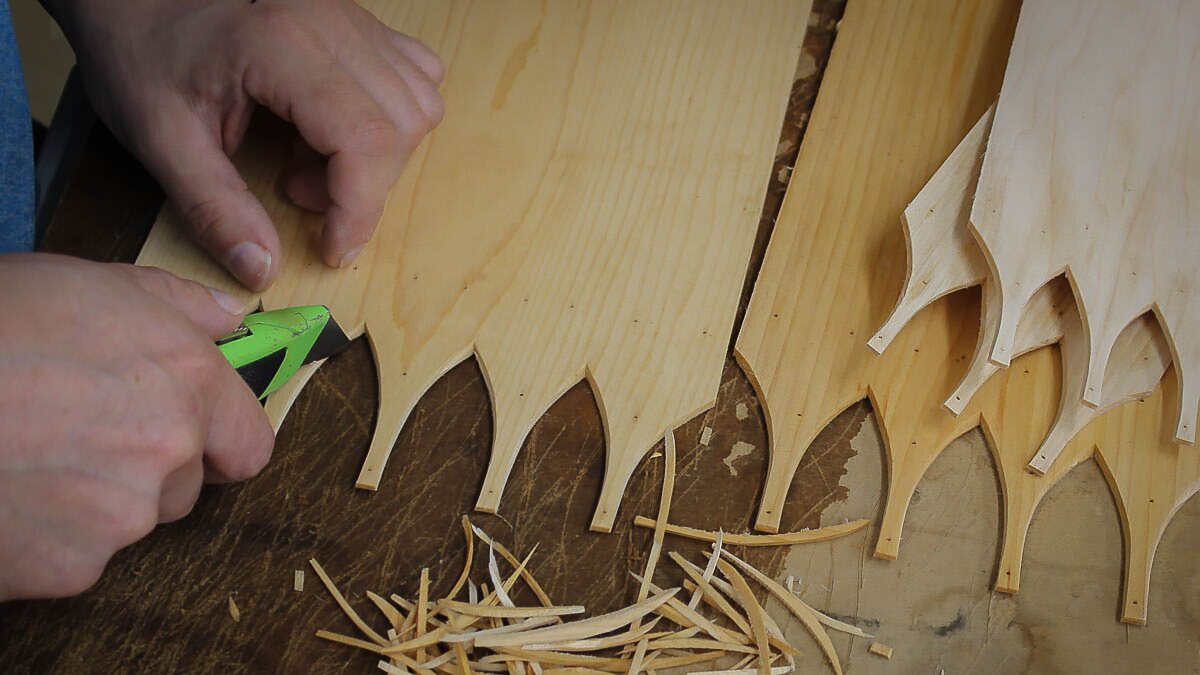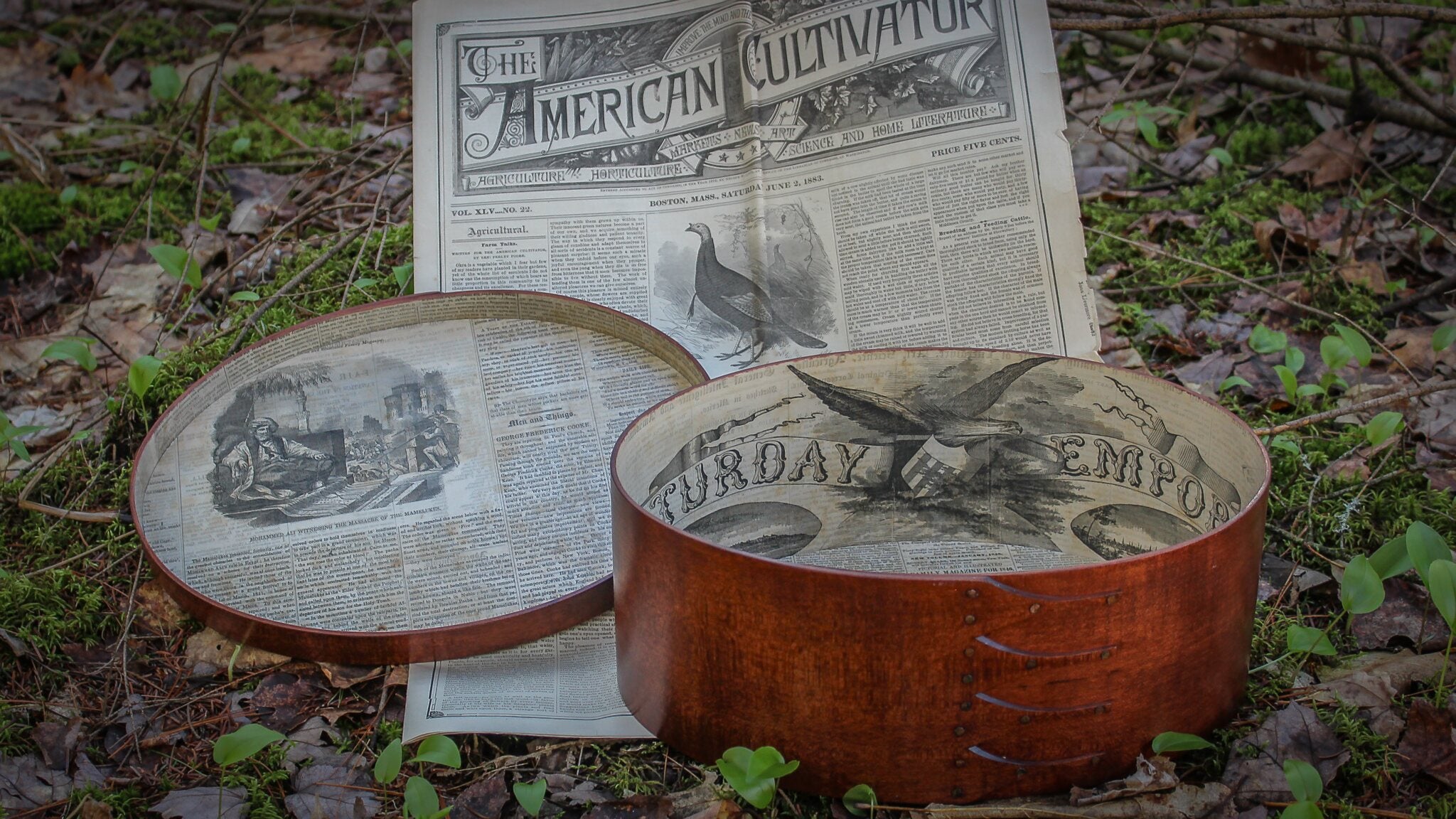Available in multiple sizes. Pricing starts at $45.00
This listing showcases examples of previously sold paper-lined trays. If you’re interested in a specific size, finish, or lining option, please submit a request form below or email me at robert@lehays.com. This helps me gauge interest and ensures you’ll be notified when new pieces become available.


Construction
Materials: The side of the tray is constructed from maple or birch and the bottom board from quarter-sawn pine. All lumber is milled at our shop here in Embden, Maine.
Hand-Cut Joints: The swallowtail joint is individually hand-cut by Robert LeHay, ensuring each piece is unique.
Fasteners: The band and bottom board is secured with copper tacks made on original 19th-century machines.
Finish Options: Available in a variety of milk paint and natural finishes. All painted pieces receive two coats of a high-quality tung oil finish, while natural finish trays receive five coats. This oil finish ensures that the tray is well protected and the finish will only get better with age.
Aged Appearance: Copper tacks are darkened to provide a vintage look.
Following tradition, the bottom of painted pieces is left unpainted, then dyed and oiled to provide an aged patina.


Paper Lining Process
Each box is carefully lined using a multi-step preservation process to ensure durability:
- The interior is painted off-white to highlight the text or design and to minimize imperfections.
- The paper is sealed with a protective acrylic coating to strengthen the fibers and prevent ink from smudging.
- Once dry, the back of the paper is fully coated with adhesive, then carefully applied and smoothed onto the wood.
- A clear protective topcoat is applied to encapsulate the lining, followed by an additional acrylic sealant for long-term durability.
This process protects the paper lining, ensuring it remains durable and well-preserved for years to come.
Please note: The newspaper lining is sealed with a clear acrylic top coat to protect the paper and help the cover slide on and off more easily. A slight temporary odor from the sealer may be noticeable, especially when the lid is closed. This will fade over time. To help speed things up, you can leave the box open for a week or so, or temporarily place a cotton ball inside with a drop of essential oil (lavender or citrus both work well).








